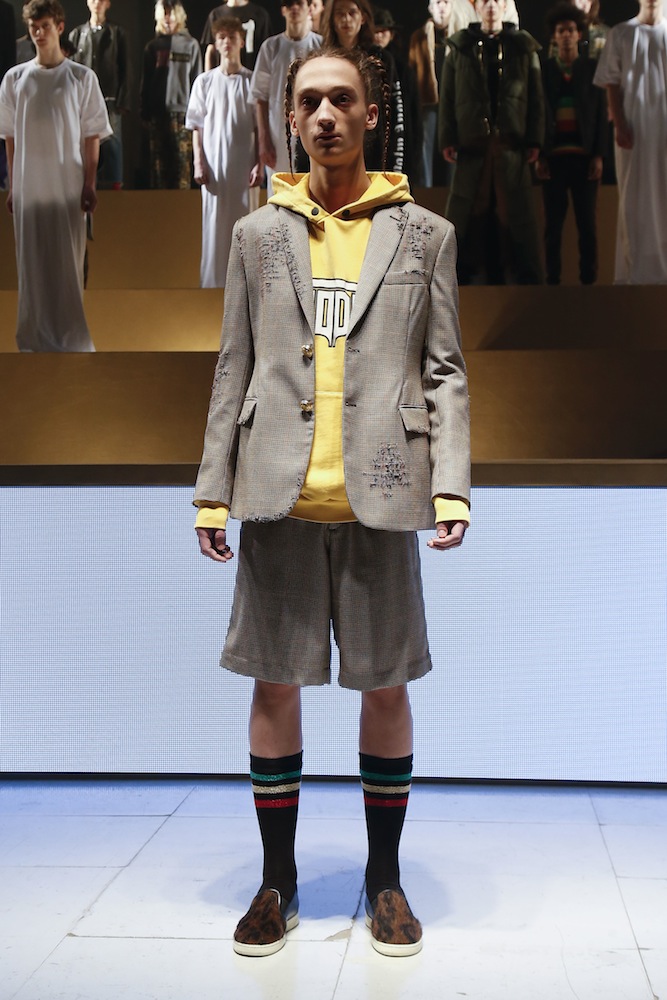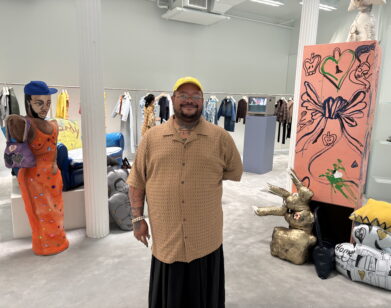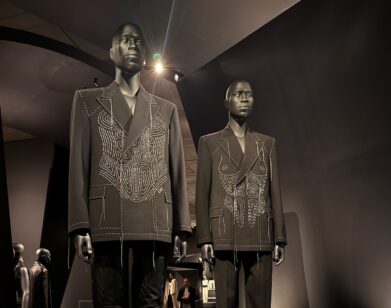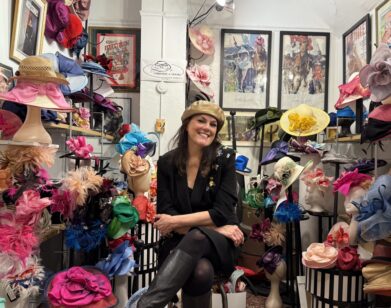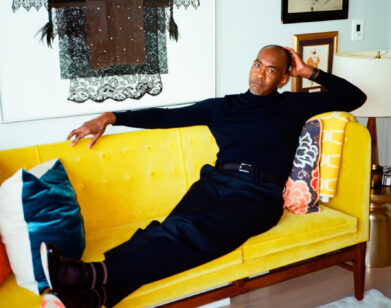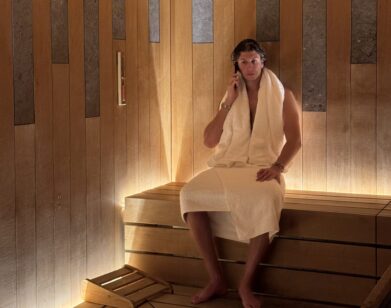Skaters, Schoolboys, and Rastafarians
When Francesco Ragazzi released his monograph Palm Angels via Rizzoli in September of 2014, he had no intention of starting a fashion label. Rather the book, which featured pictures of L.A. skateboarders, was meant to tell a personal story about the 30-year-old Italian aesthete’s relationship to L.A. and American culture. “There are a lot of skater photographers,” Ragazzi explains. “They take pictures of tricks and the way people skate. I wanted to focus more on them, their attitude, and the way they dressed.
Ragazzi first visited Los Angeles six years ago, arriving at five o’clock in the evening. “I was touched by the light,” he recalls. “It was at the time of the golden hour when the sun goes down.” He went to Venice Beach, where he encountered the skaters that became the subject of his book. “Visiting Venice, you really feel the essence of the skater,” he says. “I fell in love with that vibe and I wanted to tell my story through this reportage of them.”
While Palm Angels the menswear label was not at the forefront of Ragazzi’s consciousness, it was, in many ways, inevitable. Ragazzi is currently the art director for Moncler—he started as an intern and never left—and grew up with parents in the industry. Fashion as a form of expression is in his blood. To promote the release of Palm Angels the book, he collaborated with friends like Mykita and Marcelo Burlon on special-edition hats and t-shirts. When, soon after, someone approached him about designing his own brand, Palm Angels was the obvious starting point. “With the book, I really shaped the brand [of] Palm Angels even if it didn’t really exist,” he says. “All the elements I put in the book I could really translate into the label.”
Last weekend, Ragazzi presented “Exodus,” Palm Angel’s third collection, in Paris. Inspired by Bob Marley’s album of the same name, which was recorded between Jamaica and London in the 1970s, looks include British schoolboy blazers and shorts—slightly frayed at the knees and shoulders—worn with skater hoodies. The green, red, and yellow of the Rastafarian flag recur throughout the collection, emblazoned across a silk bomber jacket, lining the edge of a scarf, and on hats and knee socks. “The vision for this season started with a picture from the book of these rasta skaters,” says Ragazzi. “I explored rasta culture and Bob Marley’s aesthetic mixed with the British aesthetic and my DNA, the preppy, California attitude.”
Although Palm Angels has already received positive press, Ragazzi is determined to take his time building the label. “We did a giant step in terms of distribution, but in terms of people knowing about the brand, it’s still very niche. I want the brand to grow very slowly and have a value,” he says. “There are a lot of brands in general—both menswear and womenswear—and you need to find your way to tell a story now. People are more interested in the story you tell rather than the product you sell.”
FOR MORE ON PALM ANGELS, VISIT THE LABEL’S WEBSITE.

